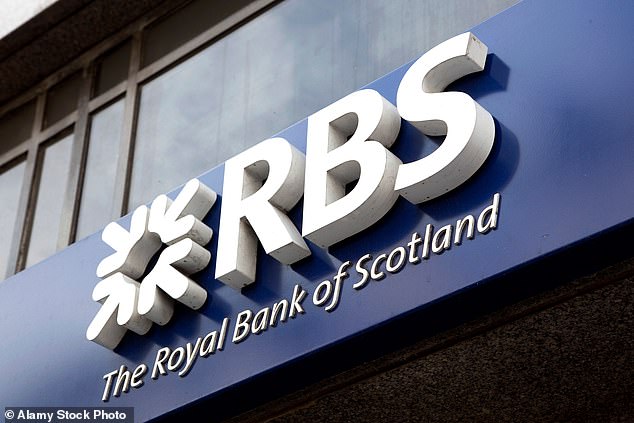I am the executor of our late mother’s estate. She had an account with RBS in Kirkcaldy and I have been trying to close it for about five months.
Closure documents have been sent at least five times and all been declined for various reasons.
The main issue I’m coming up against is that RBS says I’m not the executor, but they change their mind about this regularly.
I’ve had contradictory advice and instructions since May of this year and over 15 telephone calls and have today been told that I’m not he executor by email… again.
On top of this a customer service agent told me I would also need a grant of probate to close the account.
What do we need to do to close it?

Stuck: RBS wouldn’t let our reader close our late mother’s family because they wouldn’t accept that I was the executor
Helen Kirrane of This is Money replies: I am sorry to hear you have faced problems closing your mother’s bank account at what is already a difficult time.
As the executor of your mother’s will, you sent off the required documents required to close your mother’s bank account, which held around £28,000 to be divided between you and your two brothers.
This had to be done on NatWest’s online portal by uploading documents.
You faced difficulties uploading the documents in the first place, such as only being able to upload a number of pages of your documents because the system would randomly select which it would or wouldn’t accept.
In addition to uploading the documents, you also posted everything, to ensure RBS had what it needed to authorise the account closure.
But by far the biggest issue you ran into in this process was the fact that RBS would not accept that you were the executor, which is surprising given you had the documents to prove it.
This is where the bank ran into some confusion as your parents had moved to South Africa some years before and had assets there.
You told me that in addition to you being the executor, your mother had designated a named executor in South Africa.
It seemed there was some back and forth within the bank as to whether you or the other named executor were the executor.
It was only when I contacted RBS to straighten out the facts, that said it would resolve the matter.
It also clarified you don’t need a grant of probate to close the account, which in May you were told you needed before being told you wouldn’t need it, and then told the opposite again, more on this below.
You told me: ‘It’s been an incredibly frustrating experience and the right hand doesn’t know what the left hand is doing at RBS.
‘My mother passed away and I am reasonably functional, but a more emotional person would have really struggled with this ordeal.’
I don’t think it is good enough and there really is no excuse for you having to repeatedly explain that you are the executor of your late mother’s estate because the staff you were passed to and fro between had not been able to understand any complexities of your case.
In my opinion, RBS should have handled your case better.
For the difficulty RBS caused you and for the excessive delay of five months, RBS offered you compensation.
A NatWest spokesman replies: We sincerely apologise for the inconvenience and distress caused by our normal procedures not being followed.
We appreciate this is a very difficult time for our customer.
We have resolved the matter with our customer and will apply the lessons learned in this case going forward. We have provided compensation for the experience.
Do you need a grant of probate to close a bank account?
Richard Burgess, partner in Private Wealth at Moore Barlow replies: Whether a grant of probate is needed depends on the amount held by the bank and varies from bank to bank.
Typically, a bank will require sight of a grant if it holds £15,000 or more on behalf of a client.
However, I have seen cases of a bank releasing over £50,000 without sight of a grant (during the pandemic in recognition of difficulties in obtaining probate so less likely to happen now) and another that insisted on seeing a grant before releasing £5,000.
Banks will release funds to settle inheritance tax and funeral costs without needing a grant of probate provided they are given evidence of these liabilities.
One solution may be to hold funds in a joint account as a certified copy of a death certificate will suffice for the account to be transferred to the surviving owner, so no need for a grant of probate.
This comes with the risk of both account holders being able to access the funds as they wish so won’t be for everybody.
NatWest will generally ask for probate where the estate is valued above £50,000, although in some cases it may also require it where there are additional complexities.
SAVE MONEY, MAKE MONEY

Sipp cashback

Sipp cashback
£200 when you deposit or transfer £15,000
4.38% cash Isa
4.38% cash Isa
Trading 212: 0.53% fixed 12-month bonus

£20 off motoring

£20 off motoring
This is Money Motoring Club voucher

Up to £100 free share

Up to £100 free share
Get a free share worth £10 to £100

No fees on 30 funds

No fees on 30 funds
Potentially zero-fee investing in an Isa or Sipp
Affiliate links: If you take out a product This is Money may earn a commission. These deals are chosen by our editorial team, as we think they are worth highlighting. This does not affect our editorial independence. Terms and conditions apply on all offers.
#wont #RBS #close #late #mothers #bank #account #28k #Weve #months
















